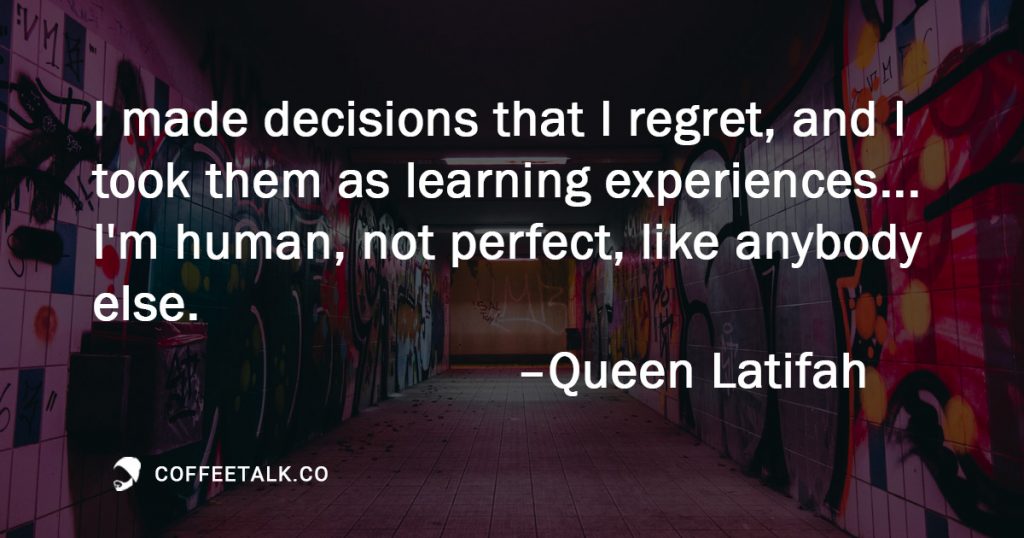Some people embrace them, some hate them, and some flat out deny them.
If you’re someone who claims to have no regrets, I don’t believe you.

Is Regret an Unreliable Emotion?
I recently came across an article stating that regret is an unreliable emotion.
“It means, in short, that regret is both difficult to anticipate and even harder to characterize in retrospect. If you feel certain about your choices in either direction—either looking back or looking forward—you may be basing your interpretations on selectively chosen information.”
The author, Chris Guillebeau points to another article on asymmetric opportunities to support his argument:
“You only experience regret when you later learn something that reveals a past mistake.
If you exit a failing relationship, you’ll never see how things might have gone, and so of course you’ll never wish you had stayed. On the other hand, if you stay too long, you might find out it’s a waste of time and wish you had left earlier.
Regret in these instances is purely a function of selection bias, and has little to do with which decision was actually better.
Similarly, a round of company layoffs that doesn’t include you could pave the way for rapid promotions. If you leave, you’ll think ‘Thank god I got off that sinking ship!’, and never learn about what could have been.”
Then he makes another assertion:
“In other words, how often do we really know we made the right decision? The best answer is: rarely, if ever!”
I get it. We’re not all-knowing and yet, we want the satisfaction of making all the right decisions — at least for the most part.
Would things have worked out better if you would have stayed or left? If you would have done this instead of that? Yeah, no one knows for sure.
That doesn’t mean regret is unreliable.
Regret Is Absolutely a Reliable Emotion
Regret exposes the inner parts of a person.
Beliefs, morals, values, desires, and all other kinds of inner things play into whether you live to regret something or not.
A regret teaches you more about who you are, not about alternate universes. I suspect this is a reason people deny having regrets in general. They’re too self-confrontational for some egos. To them, feeling regret is about being wrong.
Regret isn’t about being right or wrong. It’s about being at peace with yourself.
The basketball player who misses the winning shot, does he live to regret it?
Depends.
Did he slack during the season? Or was he disciplined enough to put in the countless hours of practice to be his best?
For the player who slacks, regret will overshadow his missing the shot unless his ego gets the best of him. Meanwhile, the disciplined player will feel just as bummed out about losing, but he won’t feel any regret.
No one knows if more practice would have actually made a difference. Yet, one feels regret while the other doesn’t.
Regret isn’t about losing on the outside. It’s about learning to win on the inside.
Use Regret To Win
Learn to use regret to help you win.
Questions like “Will I regret this decision later on?” or “Will I regret living like this in the long run?” can be used as a compass to make decisions you’re at peace with.
Avoid decisions you’ll regret, not to avoid being wrong, but to embrace whom you’ve chosen to be.

